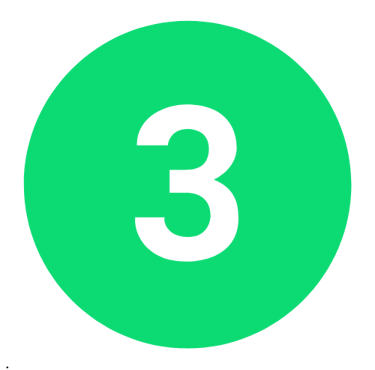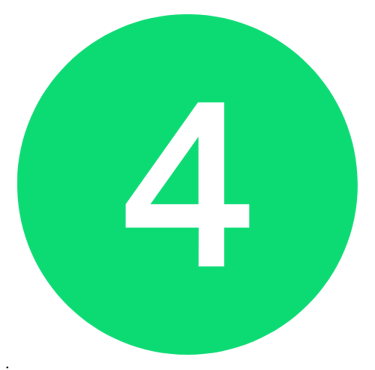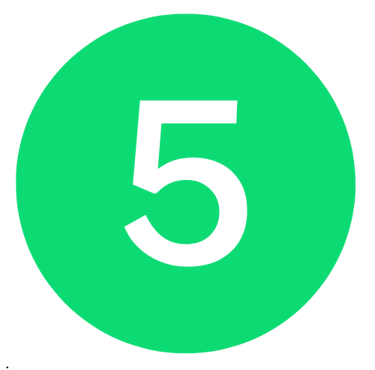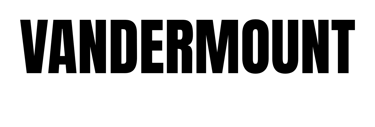
5 Ways To Have a Successful 1:1 Follow up
How to make genuine connections with fellow entrepreneurs that create win-win outcomes
Most entrepreneurs want to build a supportive community of fellow entrepreneurs. But it can feel cringey trying to schedule coffee so that you can talk about... well... yourself.


Do 1:1 Follow ups at business networking events feel shallow to you?
Because of this, man people never build lasting relationships with others after attending a business networking event.
However, there is a way for you to have authentic, meaningful follow-ups without coming off as pushy or salesy. Best of all, these types of conversations can result in strategic partnerships and future referrals.
In this Guide, we'll share five ways to book a successful 1:1 follow up so that others find you a valuable asset and you grow your network of powerful partnerships. So let's get started!
1:1 Follow ups are not chores or even benign tasks. So don't ask someone to coffee with a passive attitude. Be cheerful, smile, and "invite" them to grab coffee with you.


Initiate a Friendly Invitation
Start with people you've already connected with at your networking group. Tell them: "I'm sorry we didn't get to talk more, but I'd love to hear more about what you do." Put the emphasis on them, not you. Avoid saying "I'd love to share more about what I do" or "I think I could be a valuable asset to your company."
The goal of this conversation is not to sell yourself to them. It's about hearing more about their business and seeing if you could both partner together down the road. Be sincere and ask them: "Do you want to grab coffee some time next week?" Avoid open ended questions that feel dominant, such as "When would you like to get coffee to talk more?" Open-ended questions are good for closing sales conversations. But this is not a sales conversation. Yes/No question have a more invitational feel. Plus, no one has ever told me "No, I don't want to get coffee with you."


You need to become good at asking curious questions. Be interested in the other person. The most powerful curious, interesting question you can start with focuses on the person's story.


Start with their Story
Your goal is to understand the person's experiences, life lessons, important seasons and anything else they want to share that influenced their desire to start a business. Some great story questions include:
"How did you get started in this field?"
"What led you to start doing what you do today?"
"Tell me what inspired you to choose this professional path."
I personally will never ever partner with someone or even refer them if I don't know something about their story. Even if they have a thousand 5 star reviews.
That might sound harsh, but a person's story directly influences why they started their business. It helps you gain insight on what drives them in their business, what lessons they've learned in life and how they view their product or service.
Learning someone's story not only makes them feel heard and appreciated. It helps build that first layer of trust between you two in the relationship.


A great entrepreneur does what they do because they are driven to do it by ambition, excitement and energy. If you're meeting with someone who is bored or apathetic about their business, or is just in it for the money alone, find someone else to include in your network.


Learn why they Love their Work
It's very enlightening learning why someone's passionate about what they do. Usually if you dig enough, you'll discover a deep purpose rooted in their business. Some great 'Why' questions to ask include:
"How do you feel about being in the industry you're in?
"What do you love most about doing what you do?
"Why is it important for customers to know about your offering?
These are obviously deeper questions, so don't be surprised if the person you're talking with says "Wow, that's a good question... I need to think about that."
Unfortunately many networking conversations include shallow questions that are asked all the time and get old fast. "Where are you located? How long have you been in business? What's your price range?" are all shallow questions to start off with. If you start with deeper questions, details about location and years in business will naturally come up.


How you act toward others and make them feel is just as important as the questions you ask. It's not being insincere to adjust your attitude in order to be more pleasant around others. That's called good self-awareness.


Be Aware of your Attitude
I remember going to get coffee with a friend. I felt fine and thought I was beaming on the outside. But when I got to my friends table, he looked at me with concerns and asked, "You look like something's wrong." That moment made me realize that I may feel fine inside, but my attitude speaks louder.
If your attitude comes off as rushed, uncaring, passive, pushy, distracted, manipulative, impatient, uninterested or flustered, people will be less likely to want to meet with you again. On the other hand, if you come off as curious, cheerful, enthusiastic, centered, relaxed and engaged, you both will enjoy the conversation and want to meet again. Here are some tips for adjusting your attitude so that you're
More eye contact
Some people find it hard to maintain eye contact when talking, so they revert to looking away from the person. Avoid this. Make eye contact at least 80% of the time, especially when you're speaking.
Smile
"A smile is your greatest asset" - Zig Ziglar. This is especially true when you're meeting someone for the first time. Show that you're glad they made time to meet with you by giving them a cheerful smile. If you're not good at this, practice smiling every day in front of your mirror.
Watch your body language
I'm guilty of crossing my arms sometimes which gives a message of being closed off. Although it seems trivial, your body language is a powerful communicator. Practice sitting more open armed with hands on the table.


Once you've gotten to know more deeply about the other person's offering, chances are they'll ask about what you do (if they don't, you have another issue to deal with). It's good to be prepared with your own outline that you can share with other people about your business.


Share about your Offering
One thing to remember is that the person you're talking with may not ask you the same deeper level questions you've been asking. That's okay. If they ask a surface level question like "Tell me more about what you do" or "How long have you been doing this?" simply start with the outline below that follows the story and purpose of your offering:
Share your Story
Think back to what led you to start your business. Was it a major life shift, such as moving, getting laid off, getting divorced or something else? Or were you simply fed up working hard for another company and not getting paid enough for it? Think through what that was and how it made you feel. What deep emotions did you feel in that season that compelled you to launch your business?
Explain the 'Why'
Now, think about what made you focus on the specific product or service that you sell. There are probably dozens of other things you could have done to make money. Yet, something about this particular service or product made got you motivated to focus on it. Think about why your offering matters deeply to you and the emotional power it makes you feel.
Keep your Shpill short
Ideally you want to explain your story and 'why' in under 1-2 minutes max. Some people feel like they need to cover every micro detail and event leading to them launching their business. This isn't necessary though. The purpose of this 1:1 follow up is to simply get an ariel view of what you do. If you've peaked the other person's curiosity, they will ask follow up questions giving you an opportunity to share more.
DON'T focus on selling points
Many entrepreneurs make the mistake of going into their sales shpills during these 1:1 conversations. They'll say things like "These are the problems we solve, the free consultations we have, and the 5 star client testimonials." Some people even go so far as to say "If you're interested, we can schedule a consultation?"
In my opinion, this is a huge blunder for 1:1 follow ups from business networking groups. These people aren't potential prospects. They're not even potential partners yet. The purpose of a 1:1 should be to learn about the person. If the relationship feels like it could be a good fit, future conversations can be scheduled to brain storm referral or partner opportunities.
Save the sales pitch for actual prospects. Not your networking 1:1 follow ups.
Always clarify your intentions for a 1:1
If you want to schedule a 1:1 follow up with another business owner who you think may be a good client, that's fine. But LET THEM KNOW the reason for your conversation. Too many people mask their sales pitches with 1:1 follow ups. If you do this, not only will you come off as cringey and unauthentic, but you will turn the other person off and develop a reputation for "Gotcha!" sales conversations.
If you're wanting to schedule a sales conversation (or what I like to call 'discovery coffee's) here's what you can say:
"Hey Mary, I love that you offer the product you do. I've helped some other clients in your field get results for an affordable price. I wanted to see... would you be open to getting coffee and seeing what options I might be able to help you with? If we find it's not a good fit, there's no pressure at all. I'd just be remiss if I didn't at least share some ideas that could help your business grow. What are your thoughts?"


Join us every Tuesday at 8:30am
We meet in Cos City Hub, Colorado Springs, CO.
We look forward to seeing you there!
Contact
Phone - (719) 291-0755
Email - info@vandermount.com
Terms & Conditions
Privacy Policy
Vandermount
Performance & Success Coaching


